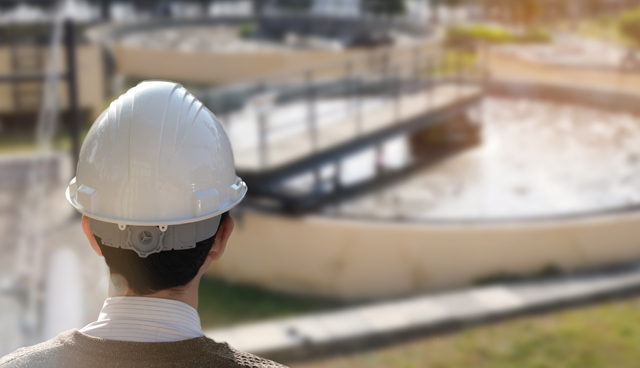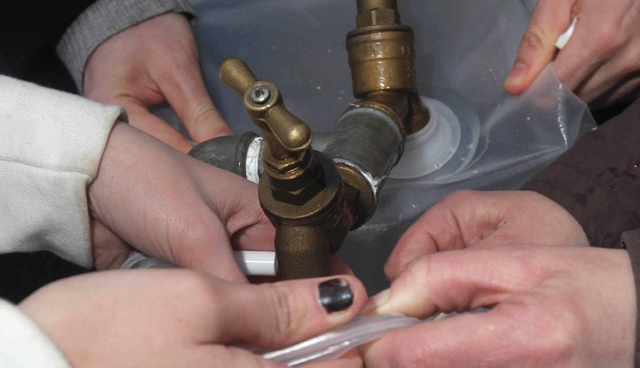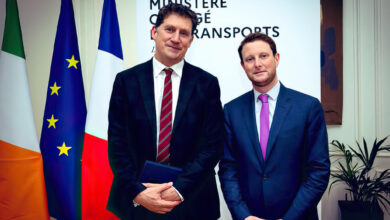Water and the Programme for Government

Some of the more notable promises contained within the Programme for Government (PfG) agreed by Fianna Fáil, Fine Gael and the Green party with regard to water include the retention of Irish Water as a publicly owned utility and the delivery of the €8.5 billion capital funding programme committed to in Project Ireland 2040.
Ireland’s water infrastructure has long been a target of criticism, with boil water notices around the country an all too common occurrence. The PfG states that “water infrastructure deficits impact on the provision of safe and secure drinking water, lead to pollution and environmental damage and presents a challenge in achieving sustainable development across urban and rural Ireland”.
The document commits to “continued investment in infrastructure” in order to “ensure continued supply of good quality drinking water and appropriate treatment of wastewater to protect our waterways”. The new Government outlines three ways by which it plans to achieve this: the retention of Irish Water in the public ownership as a national, standalone, regulated utility; ensuring that Irish Water is given enough funding to “make the necessary investment in drinking water and wastewater infrastructure”; and the mandating of Irish Water to develop plans to “ensure security of supply and sufficient capacity in drinking and wastewater networks to allow for balanced regional development”.
Chief among the mechanisms by which this funding and continued investment will be delivered is the funding of Irish Water’s capital investment plan on a multi-annual basis and the deliverance of the €8.5 billion funding package that was committed to in Project Ireland 2040. Projects included under this €8.5 billion plan include some that have already begin and other that are in the offing: the Vartry Water Supply Scheme; the Ringsend Wastewater Treatment Plant; the Cork Lower Harbour Main Drainage Project; the Athlone Main Drainage Project; the Belmullet Sewerage Scheme; the Killala, Foxford and Charlestown Sewerage Schemes; the Enniscorthy Wastewater Treatment Plant; the North Docklands Sewerage Scheme; the Donegal Group B project, which includes new sewerage schemes in Killybegs, Bundoran, Glencolumbkille and Convoy; the Kerry Central Regional Water Supply Scheme; the Eastern and Midlands Water Supply Project, which will abstract water from Parteen Basin in the Lower Shannon and transport it to the Greater Dublin Area and the midlands; and the Greater Dublin Drainage Project.
The PfG also commits to supporting the take up of Irish Water’s Small Tows and Villages Growth Programme 2020-2024, “which will provide water and wastewater growth capacity in smaller settlements which would not otherwise be provided for in Irish Water’s capital investment plan”, using the Rural Regeneration and Development Fund and further support for “continued investment” in reducing leakage across the network, although it is not specified how that support will be provided.
Criticism of a lack of concrete details on planned courses of action from the Government has been a constant since the details of the PfG were made public and the water provisions within are no exception to the non-committal language littered throughout, as can be seen in the pledge to “fully consider the review from the Commission for Regulation of Utilities to Irish Water’s proposed approach to the Water Supply Project for the Easter and Midlands Region”.
In terms of drinking water, the PfG commits to two key measures: the development of a scheme between local authorities and Irish Water that will provide water fountains nationwide in order to reduce plastic bottle litter; and the continued funding of upgrades to wells. Wastewater is also given two key measures to be undertaken, but again no funding mechanism or totals are specified. It is simply said that the new government “will continue to help fund upgrades to domestic wastewater treatment systems, including septic tanks” and will “review and work to improve the inspection regime for the 500,000 domestic wastewater systems”.

“Safety standards comprise a large chunk of the water section of the PfG, with the provision of safe drinking water and proper wastewater said to be a ‘priority for government’.”
Safety standards comprise a large chunk of the water section of the PfG, with the provision of safe drinking water and proper wastewater said to be a “priority for government”. Seven main measures through which this provision will be ensured are outlined: ensuring that Irish Water progresses works to reduce the number of schemes that remain on the Environmental Protection Agency’s Remedial Action List; supporting Irish Water’s programme to remove lead piping from the public supply; ensuring the State complies with the EU Water Framework Directive; expanding programmes such as the Agriculture Sustainability Support and Advisory Programme and “work with farmers, industry and advisory services to protect and deliver improvements in water quality”; launching a new revised River Basin Management Plan in 2022 “drawing on a collaborative approach between all stakeholders”; ensuring Irish Water develops drinking water safety plans in order to protect abstraction sources and reduce public health risks such as Trihalomethane exceedances in treatment plants; and continuing to support the Local Authority Waters Programme and expand the Community Water Development Fund.
Group water schemes are also mentioned, with the Government committing to supporting the National Federation of Group Water Schemes to “ensure that issues of quality and security of supply are addressed” and to the continuation of funding for multi-annual funding programmes to protect water quality in group water schemes. Research in the shape of “a range of research projects to explore innovative ways of improving our water infrastructure and reducing consumption” are also pledged.
Finally, in terms of environmental measures, the PfG is mainly concerned with conservation and energy use. With regard to conservation, the Government pledges to: continue the free allowance of water to every citizen; implement the recommendations of the Committee on Future Funding of Domestic Water Services in relation to excess usage; advocate at the EU level for more water and energy efficient white goods; and conduct a feasibility study into how further assistance can be offered to low income households in order to have them make the switch to more water efficient appliances. In terms of energy, the Government commits to “review the electricity requirements of water and wastewater treatment plans and carry out a series of pilot projects to incorporate onsite renewable energy generation”.





